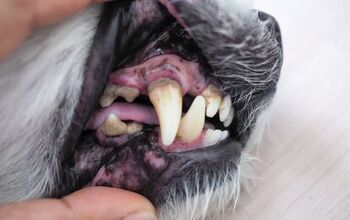Can You Get Worms From Your Dog?

Sharing your life with a dog is such a joy – but sometimes, you end up sharing a bit more than you'd want to. And no, we’re not talking about your bed. One common concern among pet owners is the possibility of contracting worms from their dogs. But this, in turn, raises more questions: how are worms transmitted, what types of worms are there, what are the symptoms, and what preventive measures can owners take? Read on to learn more about best practices to ensure your and your pet’s safety when it comes to intestinal parasites.
Can You Get Worms From Your Dog?
The first thing owners need to know is the types of worms that can affect their pets. While doggos can contract these worms through various means, such as ingestion of infected feces or soil, flea bites, or through their mother’s milk, the risk of transmission to humans varies with each type.
- Roundworms:
- These are the most common intestinal parasites in dogs. They can be transmitted to humans, especially children, through accidental ingestion of contaminated soil or feces. The larvae of these worms can migrate through the body, causing a condition known as visceral larva migrans.
- Hookworms:
- These parasites can also infect humans through direct contact with contaminated soil. The larvae penetrate the skin, leading to a condition called cutaneous larva migrans, which manifests as itchy, red trails on the skin.
- Tapeworms:
- These are usually transmitted to dogs through the ingestion of fleas that carry tapeworm larvae. While direct transmission from dogs to humans is rare, it can occur if a person accidentally ingests an infected flea.
- Whipworms:
- These worms are less common and primarily infect dogs through the ingestion of contaminated soil. Human infection is rare but possible.
Human infection with dog worms primarily occurs through accidental ingestion or skin contact with contaminated soil or feces. Children, due to their tendency to play in the dirt and their less stringent hygiene practices, are at higher risk. Adults can also be infected, particularly if they handle soil or dog feces without proper precautions.
Preventing worm transmission from dogs to humans involves a combination of good hygiene practices and regular veterinary care for your pet. Here are some key preventive measures:
- Ensure that your dog is regularly dewormed according to your vet’s recommendations. This helps reduce the risk of your dog contracting and spreading worms.
- Implement a flea control regimen to prevent tapeworm infections. Use flea prevention products and regularly check your pet for fleas.
- Always pick up and dispose of your dog’s feces promptly and hygienically. Use gloves or dog waste bags to avoid direct contact.
- Wash your hands thoroughly with soap and water after handling your dog, their feces, or anything that might be contaminated.
- Keep your dog’s living area clean and regularly wash their bedding. Avoid allowing your dog to roam in areas where they might be exposed to infected soil or feces.
- Take your dog for regular veterinary check-ups to monitor their health and catch any potential infections early.
Of course, if you suspect that you or a family member has contracted worms, it is crucial to seek medical advice promptly. Early diagnosis and treatment can prevent complications and promote quicker recovery.

A proud mama to seven dogs and ten cats, Angela spends her days writing for her fellow pet parents and pampering her furballs, all of whom are rescues. When she's not gushing over her adorable cats or playing with her dogs, she can be found curled up with a good fantasy book.
More by Angela Vuckovic

























